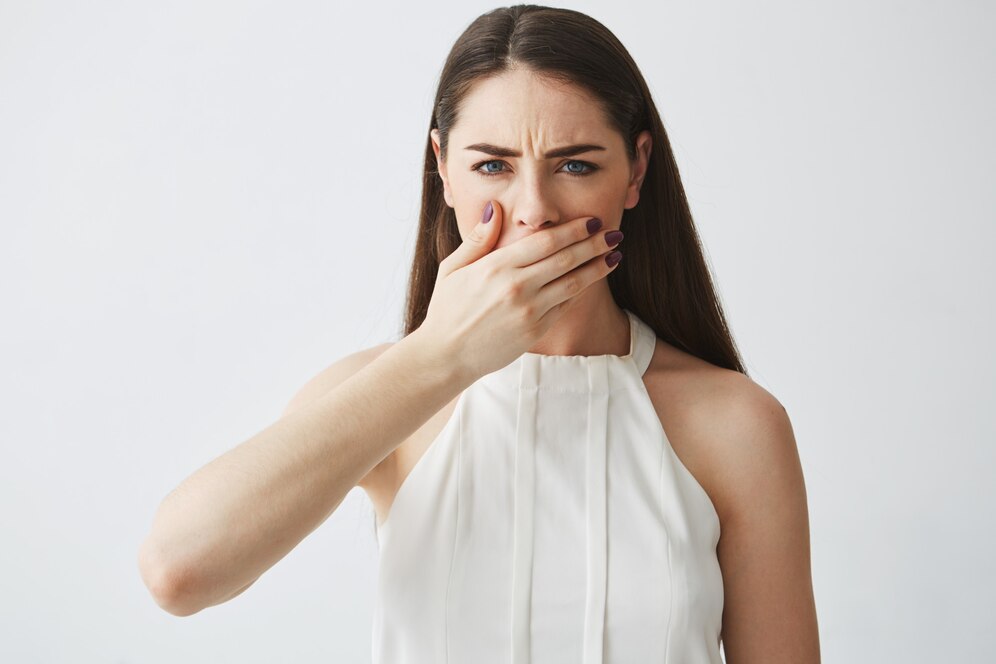You ever have one of those days where your mouth just… feels off? Like no matter what you do, it still tastes like you forgot to brush your teeth for three weeks—even though you literally just did two hours ago? Yeah. That feeling. It’s kinda the worst.
So what do you do when you want your mouth to feel actually fresh—not that minty-burn fake fresh, but that deep, clean, wake-up-singing kind of fresh? Let’s talk about it. No fluff, no weird hacks involving baking soda and regret, just real stuff that makes a difference.
And not to sound dramatic, but once you really know what a clean mouth feels like, you’ll never wanna go back. It becomes a thing. You start noticing the tiny details. Like how your tongue feels. Or if your breath would scare off a houseplant. It’s weird. But also kinda cool?
First things first—brushing.
Yeah, I know. Obvious. But we’re not just talking about brushing for the sake of it. We’re talking about brushing like you mean it. Most people? They do the whole “quick swipe and spit” thing. Not judging, but that’s not it. You want your teeth to feel smooth when you run your tongue across them—not fuzzy. If they still feel like a velcro wall, go back in there.
Electric toothbrushes help, honestly. They buzz weirdly and make you feel like a robot, but they also clean like five times better than that basic drugstore brush. Oral-B or Philips Sonicare, whatever floats your boat. Here’s one I kinda like from Amazon. Again, not pushing it—just saying it’s a vibe.
Now let’s talk about the tongue.
Seriously. If you’re brushing but ignoring your tongue? You’re only doing half the job. That’s where so much of the gunk hangs out. Bad breath’s secret hideout. And brushing it with your toothbrush kinda helps, but honestly? A tongue scraper is where the magic happens. Stainless steel ones are great. They look weird and medieval, but they work.
You drag that thing across your tongue and suddenly you’re like, wait, that was in my mouth the whole time? Gross. But satisfying.
And then there’s flossing. Yeah, yeah, everyone hates it. It’s tedious, it’s annoying, and sometimes your gums bleed and you’re like “am I dying?” (You’re not. Probably.) But skipping it is like washing your hair and ignoring the back of your head. You may not see it, but it still exists.
Floss picks help. Those little plastic things with the floss already strung tight. Toss a few in your bag, in your car, by your bed. Makes it easier when you’re feeling lazy.
Let’s pause for a sec—mouthwash. People have very strong feelings about it. Some love the intense burning. Others think it’s basically alcohol disguised as medicine. I’m kinda in the middle. It depends on the day. Sometimes I want the fire, sometimes I just want a gentle rinse.
There’s a green Listerine one I use sometimes (you know the one—smells like a forest but stings like betrayal). It does leave your mouth feeling like it just got detoxed. But the milder ones are fine too. Just don’t rely on it to replace everything else. It’s a final touch, not the whole routine.
So yeah, here’s the kinda-loose breakdown of the “feel really clean” essentials:
- Brush. Like, actually brush. Two full minutes. Not negotiable.
- Tongue scraper. It’s weird at first. Then it becomes non-negotiable.
- Floss. Even if it’s just every other night. Your gums will forgive you.
- Mouthwash when needed. For that final fresh punch.
- Water. Honestly. Just drink more. Mouth dryness is real.
Random trick? Eat a raw carrot or apple. Sounds dumb, but it helps. Natural crunch, natural clean. Also, avoids that weird pasty feeling you get after eating too many carbs. I read somewhere it kinda stimulates saliva and scrapes away plaque a bit. Whether that’s true or just good fiction, it works. So… why not?
And cloves. Like, legit whole cloves. Pop one in your mouth and let it sit there for a while. It numbs your tongue a bit and smells amazing. Super old-school, kinda forgotten, but weirdly effective. You can find them at any grocery store, tucked away near the cinnamon and mystery spices.
Another thing: check your diet. Some foods just ruin the mouth vibe. Sugary snacks, dairy overload, stuff that lingers like that one clingy person at a party. Not saying don’t enjoy your life, but maybe balance it out. Follow the cookie with a glass of water or something. Just… don’t let the funk settle.
And can we talk about hydration? Mouth feels gross? You’re probably just dehydrated. Like, real talk. Most of the time, your body’s just screaming for water and you’re like “maybe I need another mint.” You don’t. You need H2O. No fizz. No sugar. Just actual water. The old-fashioned kind.
Honestly, keeping your mouth feeling clean isn’t about buying a million things or brushing ten times a day. It’s more like… being just a little more aware. Making small choices that add up. Do the big things right—brushing, flossing, tongue stuff—and then just tweak the rest when needed.
Nobody’s mouth is perfect all day. Not even those people with shiny Instagram smiles and suspiciously white teeth. But you can get close to that dentist-chair-clean feeling if you actually care a little. And once you start noticing how good it feels? You’ll get a bit obsessed.
Not in a bad way. In a “hey, I actually like how my mouth feels right now” kinda way.
Anyway, I could go on, but now I’m wondering—do other people pay this much attention to their mouth? Or am I just overthinking it again?
FAQs with Answers:
1. What causes my mouth to feel dirty even after brushing?
It could be due to leftover food particles, tongue buildup, or dehydration. Brushing alone isn’t always enough—don’t skip flossing or tongue cleaning.
2. How often should I scrape my tongue?
Once a day is usually enough, ideally in the morning. It helps remove bacteria and keeps your breath fresher throughout the day.
3. Do electric toothbrushes really clean better?
Honestly, yeah. They tend to cover more surface with less effort and often have timers, so you’re brushing long enough.
4. Can diet affect how fresh my mouth feels?
Definitely. Sugary, sticky, or dairy-heavy foods can leave a film in your mouth. Crunchy fruits or veggies can help reset that feeling.
5. Are mouthwashes with alcohol bad for you?
Not necessarily, but they can be harsh and drying for some people. Alcohol-free options are gentler if your mouth feels sensitive.
6. Does drinking water really help with mouth freshness?
Yes! Staying hydrated helps flush bacteria and keeps your saliva levels up, which naturally cleanses the mouth.
7. Is it okay to chew cloves or herbs for fresh breath?
Totally fine, and kinda old-school. Cloves, cardamom, or fennel can freshen breath naturally and may have mild antibacterial properties.
8. How long should I brush my teeth for a truly clean feel?
Two full minutes. No shortcuts. Using a timer or an electric brush with a built-in timer makes it easier to stay consistent.
9. Why does my breath still smell even after brushing?
It might be from bacteria on your tongue, dry mouth, or even gut issues. Try adding tongue scraping and stay hydrated.
10. Is flossing really that important?
Yep. Skipping it means you’re ignoring about 40% of your tooth surfaces. Plaque builds up between teeth and causes odor if left alone.





